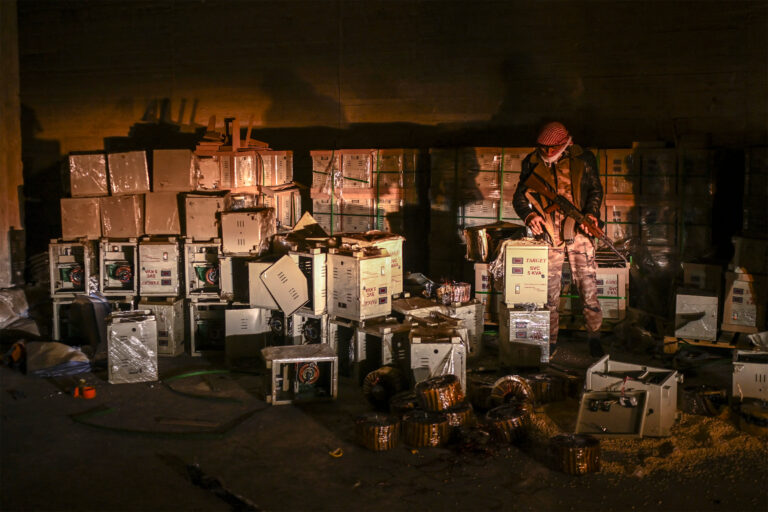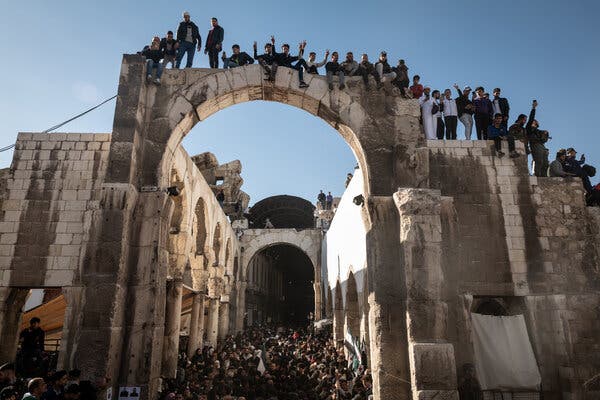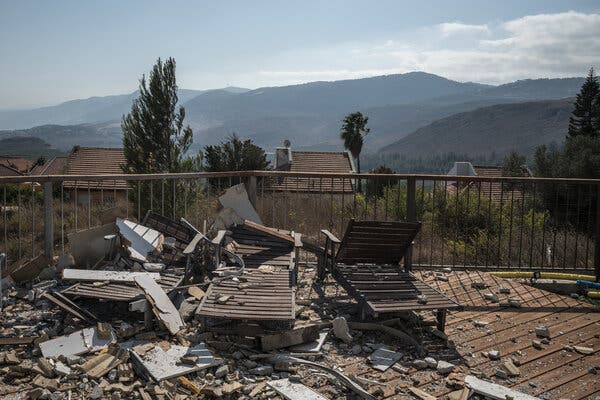With fears growing of a wider regional war in the Middle East, the United States is working to broker a short-term cease-fire agreement.

The United States is working to broker a short-term cease-fire to halt the spasm of violence between Israel and Hezbollah in the hopes that it could avert a wider war and boost stalled negotiations between Israel and Hamas in Gaza, a U.S. official said on Wednesday.
American diplomats are trying to persuade the two sides to stand down after several days of intense fighting along Israel’s northern border with Lebanon, including a wave of fierce airstrikes by Israeli forces that have killed hundreds of people in the past week.
The immediate goal of the new diplomatic effort is to reduce the chance that the deadliest week of fighting between Lebanon and Israel in years will draw the Middle East — and the United States — into a wider conflict that kills many more people and destabilizes the region.
But American officials also hope that finding a way to step back from a war with Hezbollah could put pressure on Yahya Sinwar, Hamas’s leader, to agree to a deal that would end nearly a year of fighting in Gaza and lead to the release of the remaining hostages taken during the group’s Oct. 7 attacks.
The new effort represents the first time since Oct. 7 that the United States sought to link the two conflicts involving Israel into a single diplomatic effort.
The official, who spoke on condition of anonymity to discuss sensitive diplomatic negotiations, said they believed that Mr. Sinwar could feel more pressure to agree to a cease-fire deal if the fighting between Israel and Hezbollah stopped.
“An all-out war is possible, but I think there’s also the opportunity — we’re still in play to have a settlement that can fundamentally change the whole region,” President Biden said during an appearance Wednesday on ABC’s “The View.”
The American official cautioned that it remained uncertain whether Hassan Nasrallah, Hezbollah’s leader, or the Israeli government of Prime Minister Benjamin Netanyahu were prepared to agree to a halt in the fighting.
Some Israeli military officials have argued for months for a more aggressive response to Hezbollah’s attacks. On Wednesday, Lt. Gen. Herzi Halevi, the Israeli military chief of staff, hinted that a ground invasion in Lebanon was possible.
“You hear the jets overhead; we have been striking all day,” General Halevi told soldiers along Israel’s border with Lebanon. “This is both to prepare the ground for your possible entry and to continue degrading Hezbollah.”
Mr. Nasrallah pledged support for Hamas after the group killed about 1,200 people in a surprise attack last year in Israel, and his group has repeatedly fired missiles and drones into northern Israel, forcing Israelis to flee their homes near the border.
The American official said it was unclear whether Hezbollah’s leader was willing to accept a cease-fire deal without seeing movement toward a similar deal in Gaza, which could complicate the effort.
The diplomacy is being conducted by the United States, with support from France.
Michael D. Shear is a White House correspondent for The Times, covering President Biden and his administration. He has reported on politics for more than 30 years. More about Michael D. Shear



